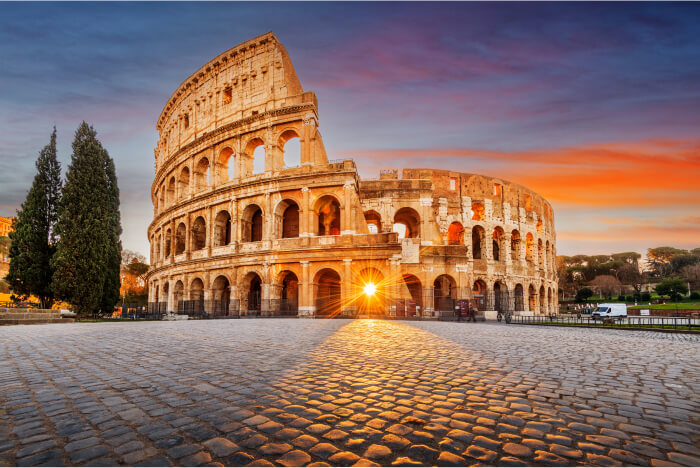Registration of dual citizenship in Italy
Italy is one of the European countries where legislation allows dual citizenship. This status means that a person is legally recognized as a citizen of both countries at the same time. It is possible to hold two passports at the same time and use them for personal purposes, as this has many advantages in many aspects of life.
Dual citizenship in Italy is available to citizens of countries that have a bilateral agreement allowing it. If that status is not recognized in the state of origin, obtaining it becomes impossible. Migrants must either give up their original passport or obtain a second one after relocation. Thus, you can have another citizenship, but not a dual one. These statuses are very different, with varying opportunities and obligations for a person towards the states.

Options for obtaining dual citizenship in Italy:
- Descent
Under the terms of immigration legislation, a person who has a direct kinship with a national of this country has the legal entitlement to get a passport. This is known as the right of blood. It is necessary to provide documentary evidence of the kinship to obtain dual citizenship in Italy. The migrant can apply for a passport on a descent basis as soon as they enter the country. For this purpose, a complete document package must be submitted, and the basic requirements specified in the legislation must be met.
- Simplified naturalization
Marriage to an Italian citizen is a legal basis for acquiring dual citizenship. However, unlike the descent program, migrants are eligible to apply after having lived with their spouse in the state for two years or abroad for three. Applications must be accompanied by a certificate of legal marriage. Moreover, there are additional requirements to be met to get a passport. The genuineness of the marriage is rigorously checked by the Italian authorities. If a breach is found, the migrant is prohibited from obtaining passport and may be deported and fined.
- Standard naturalization
This is the most common way of immigration to Italy and the acquisition of dual citizenship. It requires a long-term stay in the country, accompanied by the possession of a residence permit granted on any of the legally permitted grounds. These include being employed by a local company, enrolling in a local educational institution, living as a financially independent person, and others. It is necessary to have lived in Italy for more than 10 years to obtain dual citizenship. In addition, immigrants must prove their integration into society and their knowledge of the national language at the B1 level. They must also meet other compulsory conditions prescribed by Italian legislation.
Advantages of obtaining dual citizenship in Italy
Acquiring dual citizenship in Italy is advantageous for a significant number of people who meet the necessary criteria. Having that status allows individuals to enjoy holding two unique passports for multiple purposes, making it more convenient than having only one. The following are the main benefits of gaining an Italian passport.
- The right to move freely between EU countries
With Italian passport, a person can freely cross the borders of European states, settle there, purchase property and carry out commercial activities. With dual citizenship, it is possible to use this country's ID card for travel purposes worldwide, with more than 175 visa-free destinations.
- Living in Italy like a native citizen

In other words, with dual citizenship, a migrant has the protection of the European Union laws. This includes the right to vote, to use public services and to receive financial support from the government.
- Freedom to do business and to open it up under the same conditions that apply to Europeans
If the conditions are met, holders of dual citizenship can set up companies in Europe and receive additional funding. Italy offers preferential payments for small and medium enterprises, assistance for entrepreneurs and many other favorable facilities for national businessmen.
- Benefiting from social services
Holders of dual citizenship in European states enjoy preferential conditions for admission to world-class universities. They can also access quality medical services on the same terms as other Europeans and are given priority in the selection of candidates for jobs in local companies. Special scholarships and grants are available to European students, opening the prospect of future employment in leading organizations in the EU and abroad.
- Bright prospects for future generations
By right of birth, children are also considered Italian citizens if their parents obtain dual citizenship in that country. This opens many prospects in their lives, giving them the potential to develop as part of European society. They will enjoy favorable conditions for education, grow up in a safe environment and develop their careers more easily later.
- Retirement in a stable environment
Having lived and worked in Italy after acquiring dual citizenship, a person who has reached pensionable age may be entitled to high benefits. This provides all the conditions for a comfortable and carefree retirement, without the need for a part-time job or a source of passive income.

Conclusions
Holding dual citizenship brings several benefits, as it opens a wide range of opportunities that are challenging to achieve with a single national passport. By meeting the requirements of one of the immigration programs, individuals can obtain that status and enjoy the privileges available to residents of Italy. It should be noted that dual citizenship does not require the surrender of one's current passport. It is therefore possible to live in your own country and in Italy as a permanent resident.
